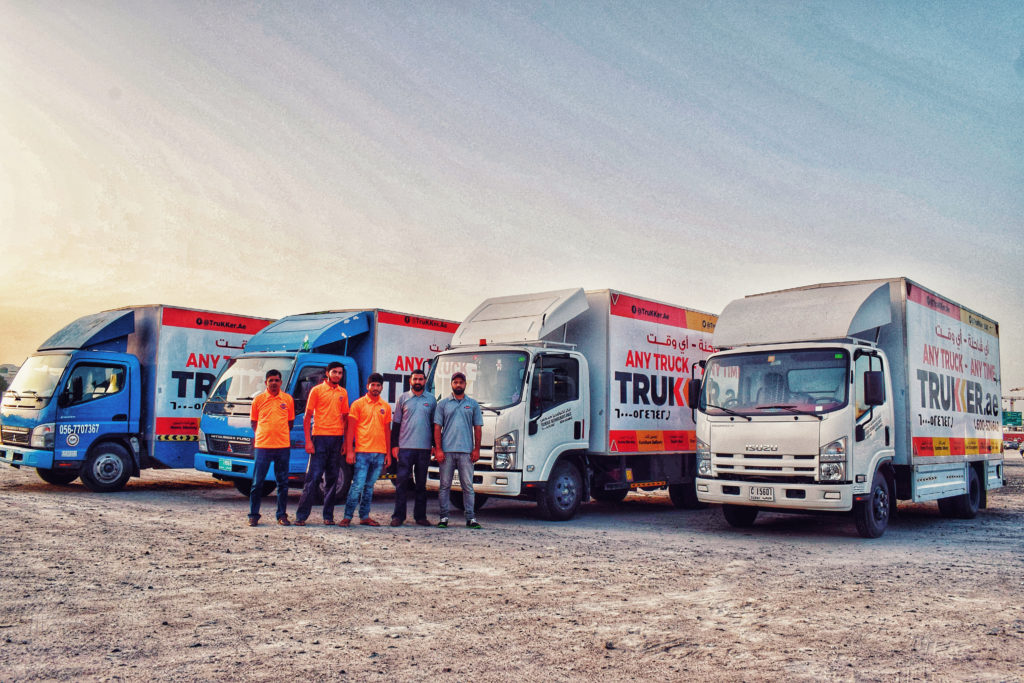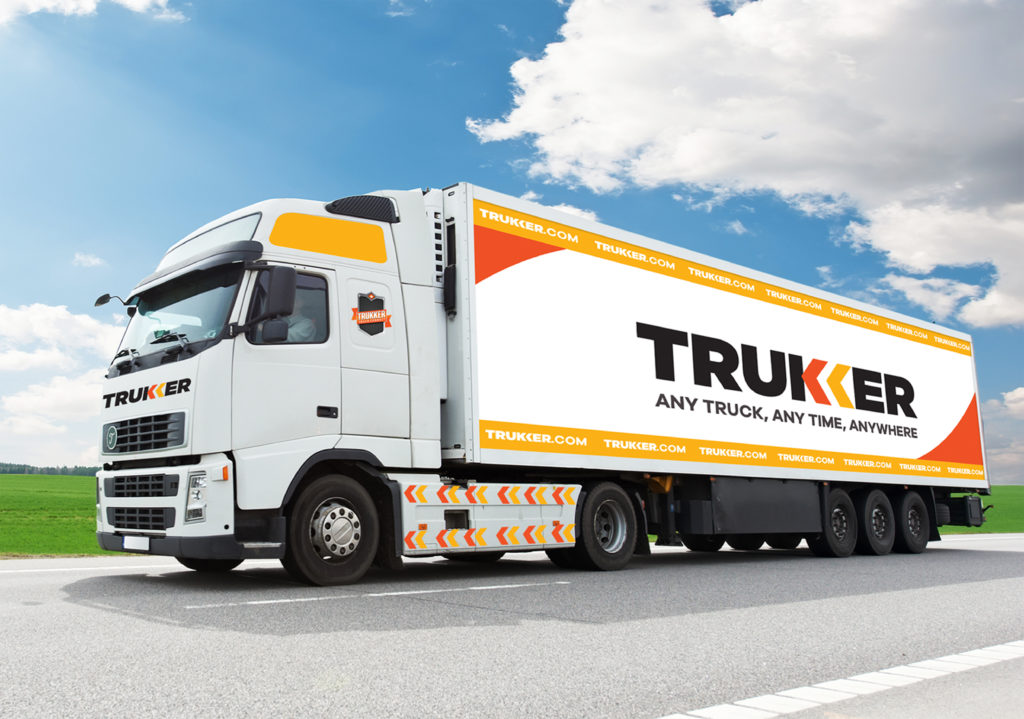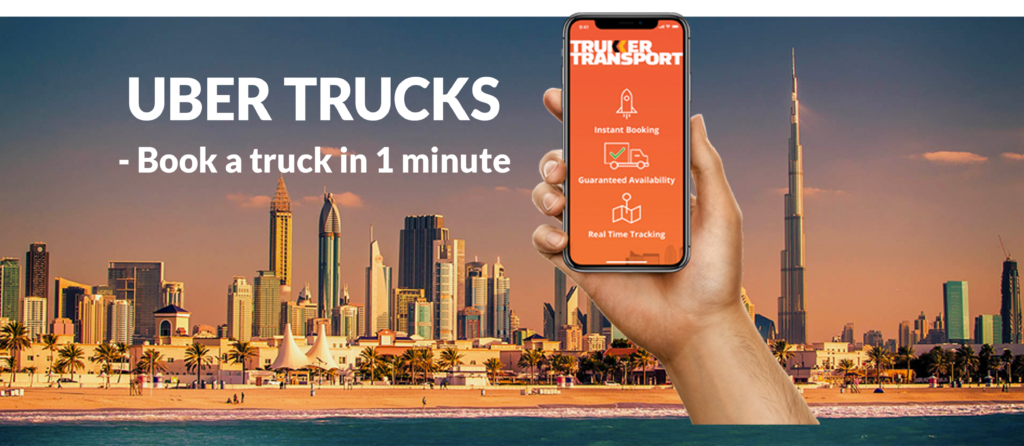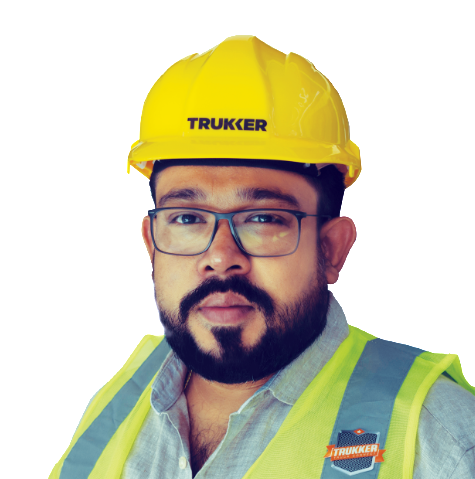Kasun Illankoon spoke with TruKKer’s CEO, Gaurav Biswas, on why TruKKer is the Uber of Trucks across GCC, Jordan, and Egypt
TruKKer is the largest tech-based truck aggregator in the region by all counts of the number of transactions, revenue, geographic scale and size of the member fleet.
Leading this charge is Gaurav Biswas, CEO of TruKKer, whose vision is to address some real pain points that exist in the road freight sector.
“Our vision is to be the primary freight exchange in the regions we operate and improve the lives of the millions of drivers through the use of technology, data analytics, and welfare infrastructure. Soon, cargo owners and transporters will have a friction-free experience where they focus on their core businesses and TruKKer’s technology integrates for all their logistics planning, dispatching, fulfillment and reporting,” said Gaurav.
“My role as the founder is focused on our long term objectives, strategy, product development, customer experience, drive and protect the culture of the organization and identify future leaders and empower them to take TruKKer further. As CEO, I am responsible for the commercial and operational targets of the company hustling every day and hour. I help the team with decision-making and steer the truck when we are not sure of the way ahead. As the leader of an innovative and fast-growing young startup, you have to maintain our pulse on the business very closely like attending to a growing infant,” further explained Gaurav.
However, they are just getting started and there is a focus on driving continuous growth into additional clients and create a network in the region to ensure that TruKKer is capturing demand and supply across the various lanes.
“This is our focus for the next 12 months. Within 18 months of our B2B business commencement, we service 170+ clients across the UAE and KSA. This is great but we will grow faster,” said Gaurav.
Uber Trucks
The way the service works sounds remarkably similar to Uber and Careem and this is not a surprise to Gaurav. He praises the fact they would be considered in the same boat as Careem and Uber.
 “We certainly find the brands of Uber and Careem help describe a technology-enabled truck aggregator. Our sales and marketing teams often use the phrase “Uber of trucks” for TruKKer, but moving cargo and moving people have no operational similarity. The fundamentals of using technology and real-time data to connect demand and supply in the most efficient manner are the aspect that is similar to Uber’s cab aggregation. Uber has also ventured into this business in North America and that is a great validation for our business model,” explains Gaurav.
“We certainly find the brands of Uber and Careem help describe a technology-enabled truck aggregator. Our sales and marketing teams often use the phrase “Uber of trucks” for TruKKer, but moving cargo and moving people have no operational similarity. The fundamentals of using technology and real-time data to connect demand and supply in the most efficient manner are the aspect that is similar to Uber’s cab aggregation. Uber has also ventured into this business in North America and that is a great validation for our business model,” explains Gaurav.
As a result, we asked Gaurav about the importance of last mile delivery in such a service.
“TruKKer’s last mile delivery is growing at a phenomenal rate in the UAE. We make 500 plus deliveries per day across the emirates and expect to double that volume shortly. TruKKer is focused on the delivery of only large and heavy products that require a truck. This also keeps us away from competing with multiple last mile parcel delivery companies.”
The benefits of TruKKer to industry and businesses are comparable to that Uber has for individuals. TruKKer becomes a reliable transportation service provider, enabled with advanced technologies.
“We guarantee truck availability, we offer close to 100 percent track and trace compliance on all our fleet, we offer the most advanced customer interface in the industry for clients to request a truck, discover the most suitable price and monitor their shipments, we are the only transportation provider that has real-time status updates to the client’s dashboard without any human intervention,” said Gaurav.
TruKKer offers the cargo owner access to the large, opaque and unorganized trucking industry in a transparent manner through an organized interface. Through the various tech-based processes and tools, we mitigate multiple operational and systemic risks. TruKKer is creating data rapidly that will provide multiple advantages to the freight ecosystem in terms of access to advanced financial products, cargo security, environmental benefits, and multiparty integrations.
Transporter expectations
 TruKKer’s business model benefits the transporter in multiple ways in exchange of two basic expectations; One – do a great job of driving and maintaining the truck as per top industry standards; and Second – comply to technology tools. TruKKer will do the rest including marketing the services of the transportation company, finding the most suitable cargo with minimum downtime, ensuring fair and timely payment and managing client reporting and interfaces.
TruKKer’s business model benefits the transporter in multiple ways in exchange of two basic expectations; One – do a great job of driving and maintaining the truck as per top industry standards; and Second – comply to technology tools. TruKKer will do the rest including marketing the services of the transportation company, finding the most suitable cargo with minimum downtime, ensuring fair and timely payment and managing client reporting and interfaces.
“The business model is based on the tech aggregator leveraging its technology and ability to engineer finances to improve asset utilization’s such that cargo owners get reliable supply at fair prices and transporters and drivers have continuous business and regular payments,” said Gaurav.
Software and Technology
TruKKer will soon offer its technology to third-party transporters to manage their own fleet and amalgamate their fleet with TruKKer and in turn, have access to loads when their assets are idle. It will be the first fleet management solution that will also offer jobs when fleets are idle.
 “We have a proprietary system of hardware, software, and algorithms that allows us access to our member trucks in real time, including the ability to identify idle fleet, award them jobs, create a market place for price discovery, track shipment delivery milestones, and fulfillment.
“We have a proprietary system of hardware, software, and algorithms that allows us access to our member trucks in real time, including the ability to identify idle fleet, award them jobs, create a market place for price discovery, track shipment delivery milestones, and fulfillment.
For long haul trucking, we have been able to achieve hundred percent digitization of documentation and are actively educating the industry to move towards digital copies from the current norms of processing tons of paper,” said Gaurav.
Logistics is one of the traditional industries that will leapfrog to multiple technology-based advancements. In the next 5 to 10 years, technology will replace functions like demand planning, stock keeping, segregation, dispatching, delivery scheduling, route planning, fulfillment, and reporting. Technology tools currently complement multiple of these functions but advances in software, hardware, and information processing technologies might replace the human interface faster than we expect. It is not necessarily a bad thing as humans will get promoted to critical tasks and troubleshooting any system anomalies and exceptions.
“The first wave of technology-driven growth has changed the way we do things every day. We are now at the gateway to the second wave that will be far more radical in impacting humans and their ways of life. I believe integrated IOT, artificial intelligence, high-speed wireless internet and drones will drive human development, communities, services and the way we interact with each other and with machines all around us.”
Plans for Expansion and Future Challenges
Gaurav plans for TruKKer’s expansion is to go beyond the GCC region and to further establish themselves at their home base even further.
“The next few years will be all about strengthening our foundations in our home turfs of UAE and KSA, with aggressive expansion across the MENA region. By the end of 2019, we will be operating across three GCC countries and Egypt. Egypt will be the gateway to Africa for TruKKer. We are also closely evaluating opportunities in Iraq and Syria.
Our rapid growth and geographical scale will soon propel us into new business lines, related to trucking that will be born from our ability to manage and influence super large fleets and thousands of truck drivers.”
Gaurav highlighted a few challenges in the logistics industry that even took him by surprise.
Ability to finance is often the only value that some players bring to the table, which is not ideal and creates the fragmentation that is systemic in this industry. There are many brokers in the road freight industry whose businesses are restricted to the amount of working capital they can invest and not on their operational credibility. However, this has made end customers used to credit periods without realizing how much this is adding to their transaction costs as the cost of capital is high for small brokers and freight forwarders.
“There are plenty of challenges in the logistics and road freight industry and some of them surprised me since I entered this industry as an outsider. I was surprised how many players are in the industry that does not add any significant value. Financing transactions is one of the key challenges of the industry where end customers take credit from brokers and brokers take credit from multiple suppliers and those suppliers further pass the credit terms lower down the chain.”
“Documentation is the other challenge in this industry. A shipment from UAE to KSA typically requires more than 5 documents from various stakeholders, all to be processed in hard copy. I used to feel the construction sector was behind time with the amount of paper that is processed but road freight is primitive. TruKKer is aggressively working towards digitization and we are exploring how new age technologies like block-chain can help make information processing between various stakeholders and regulators more seamless and secure,” said Gaurav.
“We are continuously investing in our technology to ensure trucking and the logistics industry does not continue to suffer from the traditional lag in technology adaptation,” concluded Gaurav.

